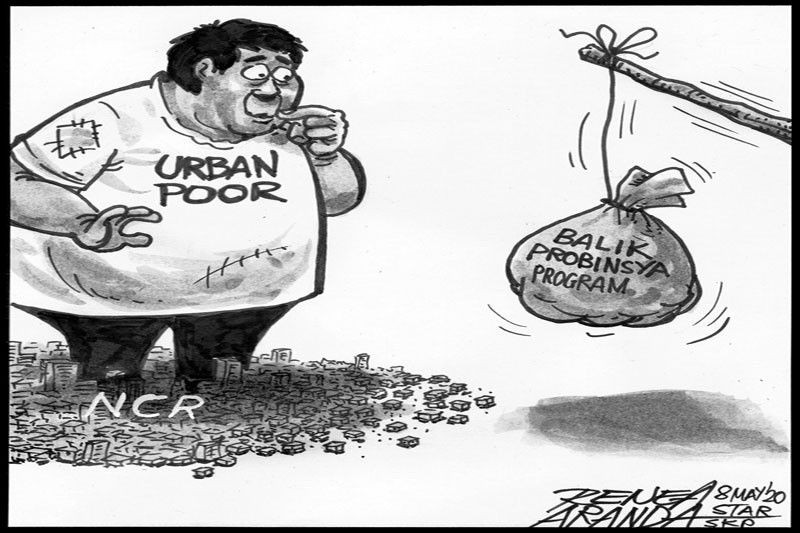EDITORIAL - Return to the provinces

Several administrations have been trying to reverse urban migration and decongest Metro Manila. The effort, however, has always been stymied by two things.
One is the lack of better livelihood alternatives that can entice people to return to their rural hometowns. Second is the power of the vote enjoyed by every citizen upon reaching 18 years old, including those living in informal settlements.
Local government executives have actively encouraged squatting because informal settlements are vote-rich enclaves where political patronage can ensure the perpetuation of dynasties. For their part, barangay officials, who are mandated by law together with the police to prevent squatting, are often the landlords in informal settlements.
Now the informal settlements in urban areas have become major headaches for local government and barangay officials in containing COVID-19. Physical distancing and basic hygiene practices against the coronavirus disease 2019, such as regular hand washing with soap and water, are serious challenges in densely populated slums.
Benigno Aquino III, during his presidency, had the National Convergence Initiatives for Sustainable Rural Development, to encourage urban migrants to return to the provinces. Now President Duterte has launched a similar program, through Executive Order 114, which he signed on May 6.
According to EO 114, the “Balik Probinsya, Bagong Pag-asa” program aims to decongest Metro Manila while at the same time promoting countryside development and the “equitable distribution of wealth, resources and opportunities” for balanced and inclusive growth across the regions.
Reversing urban migration entails not just persuading the migrants to return to the rural areas but also to keep them there. This is possible only if they are assured of jobs and livelihood opportunities, decent shelter as well as basic services such as education, health care and public utilities that are widely available in the urban centers.
This means making rural areas attractive for job-generating investments and industrial activities, through the provision of adequate infrastructure and proper business environment. Agricultural production can also be boosted to entice more people to return to farming or engage in agribusiness ventures. Such programs will need microlending support. When the pandemic is over, tourism is also a major source of livelihood opportunities.
Even before the “Balik Probinsiya” program gets underway, certain local executives are already expressing resistance to the possibility of seeing an influx of informal settlers from Metro Manila. Even without the pandemic, such resistance is bound to be there. The return to the provinces is a long-term program that can succeed only if the necessary support services are present – both for the returnees, and the communities that will take them in.
- Latest
- Trending

























